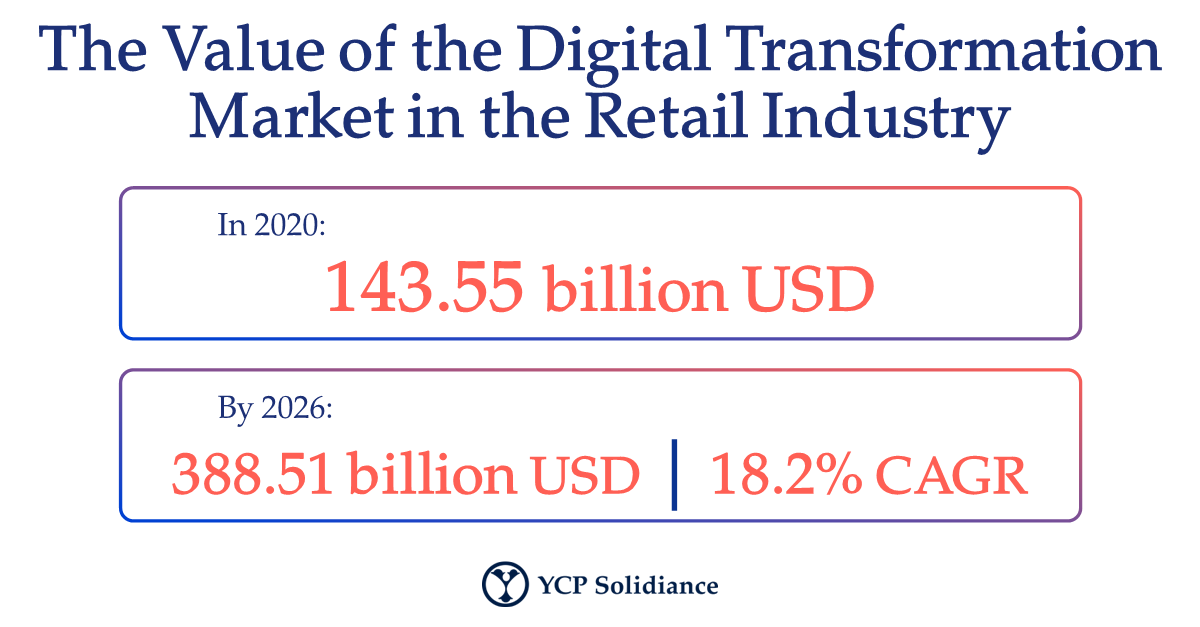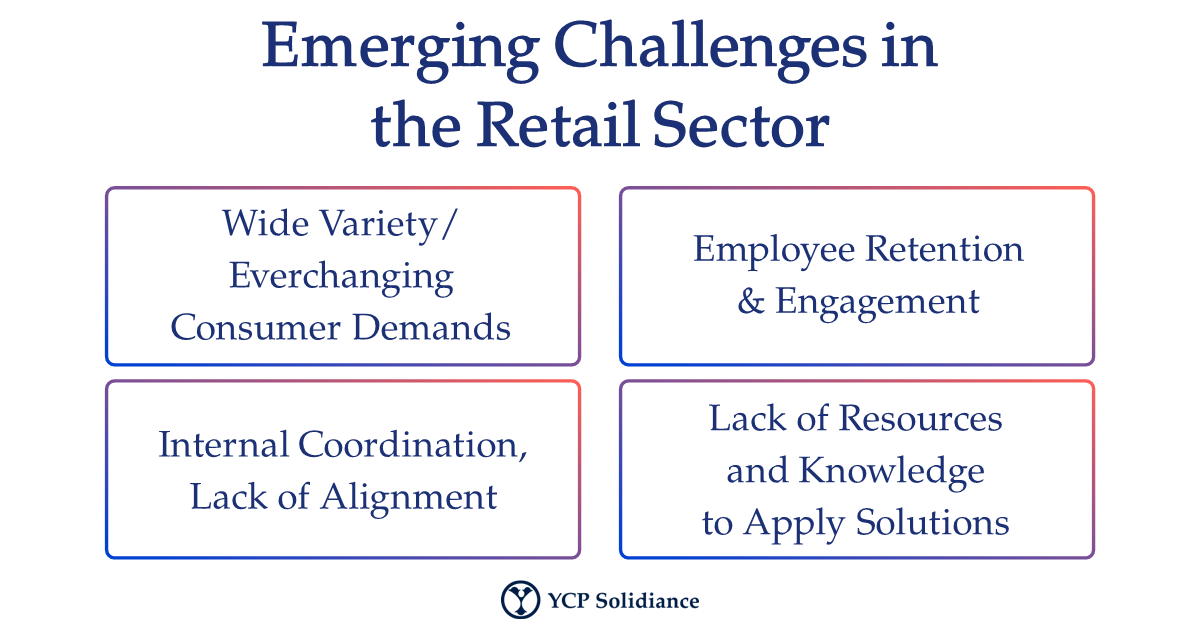In the digital age, catering to a diverse set of retailers who are both young and old becomes an inevitable and equally challenging task. Consumption habits are constantly changing, and consumers adeptly shift between physical and digital environments.
To meet demands, players in the retail industry must reconsider their strategies. As such, digital transformation has become an important area of consideration in the retail sector as evidenced by recent statistics from Mordor Intelligence wherein global retailer investments in digital transformation tools are expected to reach $388 billion by 2026, growing at an 18% annual rate.

Digital Transformation Trends in the Retail Industry
In the current context of the retail industry, the younger generation, specifically Gen Z consumers, have adopted an on-demand mentality, which allows them to purchase products with a single click. This mentality even manifests itself in more nuanced retail habits like preferring in-store pickup or delivery as opposed to waiting in line. Meanwhile, the retail industry also must meet the expectations of older consumers who are not as technologically adept. Thus, the retail sector must bank on digital transformation to bridge the gap.
Given that the retail industry must cater to a diverse set of consumers, retailers should focus on creating a strategy based on data-driven insight to meet elevated market expectations. In the context of digital transformation, retail businesses should reinvent their business models and establish a solid omnichannel approach.
Those that are able to do so will be able to gain the advantage of creating a strong presence among consumers, both in regard to online and offline channels. Further, retailers who diversify their operations across several platforms will also be able to capitalize on new revenue streams, potentially emerging as leading market competitors.

Retail Sector Investment in Artificial Intelligence
Moreover, the retail industry currently faces the challenge of outdated inventory management, which causes an overall lack of efficiency and an inability to collect real-time operational data. Such an issue may have detrimental outcomes in the current context, especially when considering how businesses operate in the digital age.
To address such an issue via digital transformation solutions, retailers should explore the implementation of artificial intelligence (AI) and machine learning (ML). These solutions will not only improve the efficiency of retail operations, but also automate and provide insight into certain functions like inventory management, purchasing, delivery, data collation, and so on. Although AI and ML implementation in retail may initially be difficult as it is expensive, it will undoubtedly be better in the long run as it reduces costs, improves the time taken to complete tasks, and streamlines operations.
Beyond improving the consumer experience, digital transformation solutions like AI in retail are also expected to fundamentally change the workforce and how it operates. Digital tools will likely supplement how they perform and carry out their duties. To add to the advantage of workers having retail expertise, the retail industry should look to upskill their labor force so that they can utilize tools like AI and ML; thus, redefining how duties are performed by employees.
Thus far, digital transformation tools have only proved to benefit the retail industry as they provide flexibility in their implementation and applications. The pandemic has illustrated that gradual changes with effective outcomes can be made, but the organization must be ready to orient itself toward the digital revolution. Moreover, these digital transformation changes and the benefits that they offer will be integral to society’s day-to-day life, an indicator of the immense potential of industries’ digital transformation.
To get insight into other trends emerging in several industries across Asia, subscribe to our newsletter here and check out these reports:







